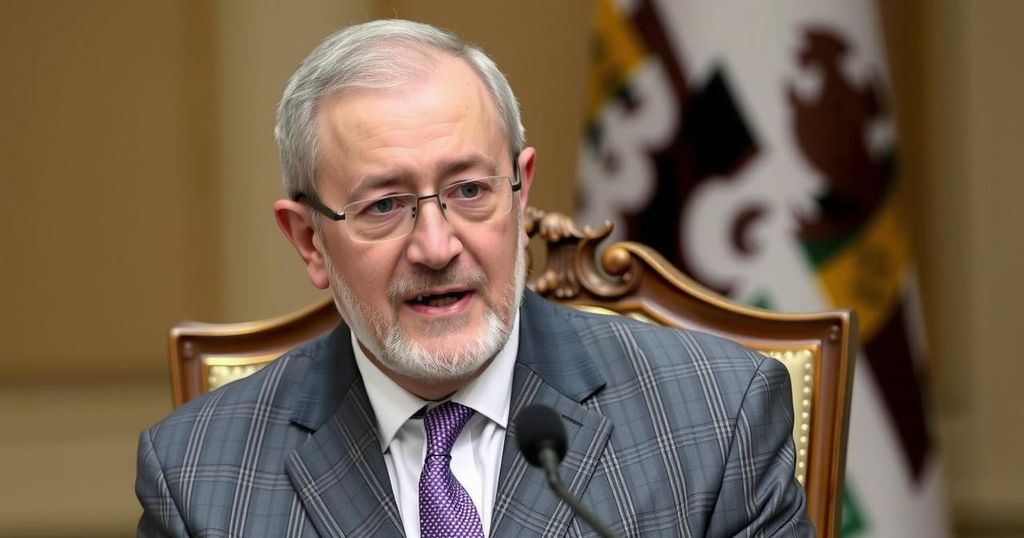Syria’s Leader Predicts Four-Year Timeline for Elections Amid Ongoing Turmoil

Ahmad al-Sharaa, head of Hayat Tahrir al-Sham (HTS), predicts that Syria may take up to four years to conduct elections. He emphasized the necessity of a new constitution and a comprehensive census for valid elections. Al-Sharaa announced HTS’s intent to dissolve as they seek to establish a transitional government amid ongoing violence, including recent Israeli airstrikes.
Ahmad al-Sharaa, the leader of Hayat Tahrir al-Sham (HTS), stated in a recent interview that it could take up to four years to conduct elections in Syria. He highlighted that a new constitution could take as long as three years to draft and emphasized the necessity of a comprehensive population census for any valid elections. Al-Sharaa also noted that holding elections would require substantial political dialogue among Syria’s various factions, following decades of the authoritarian rule of the al-Assad regime.
In addition, al-Sharaa announced plans for HTS to dissolve as the group aims to establish a transitional government at an upcoming national dialogue summit, where diverse Syrian factions are expected to come together to discuss the future of the country. He acknowledged that the country’s devastated infrastructure must be rebuilt to support the political transition. Furthermore, he expressed hope for maintaining strategic relations with Russia, a key ally throughout the conflict.
The interview comes on the heels of a significant evolution in Syria, following HTS’s successful uprising against Bashar Assad’s long-standing regime. Despite this change, violence continues in the region, exemplified by a recent Israeli airstrike that reportedly killed at least 11 individuals, mostly civilians, near Damascus, as part of Israel’s ongoing military operations targeting Iranian-backed forces.
As tensions remain high in the region, the Kurdish-led Syrian Democratic Forces are also engaged in negotiations with HTS to integrate their armed forces into the broader Syrian security framework. This situation is further complicated by unrest between Turkish-backed Syrian rebels and the SDF, despite the shift in control following the insurgency.
This article addresses the political landscape in Syria following the recent overthrow of President Bashar Assad. Ahmad al-Sharaa, the leader of the Islamist group HTS, is positioning himself as a key figure in the impending political transition, which includes creating a new constitution and preparing for elections. The remarks reflect the challenges faced in rebuilding a war-torn country and the ongoing violence, including external military strikes that continue to undermine stability. The historical context includes Syria’s long-standing civil war, initiated in 2011, and the authoritarian rule of the al-Assad family. This context emphasizes the complexity of establishing a functional government while navigating the relationships with external powers and internal factions.
In conclusion, Ahmad al-Sharaa’s statements underscore the extensive timeframe anticipated for Syria to achieve a semblance of political stability through elections and constitution drafting. The challenges posed by the need for infrastructure rebuilding, extensive political dialogue, and the ongoing violence from external forces complicate the path towards a unified and democratic Syria. This period marks a critical juncture in the nation’s transition from decades of dictatorship to potential governance that includes diverse political factions.
Original Source: www.euronews.com








